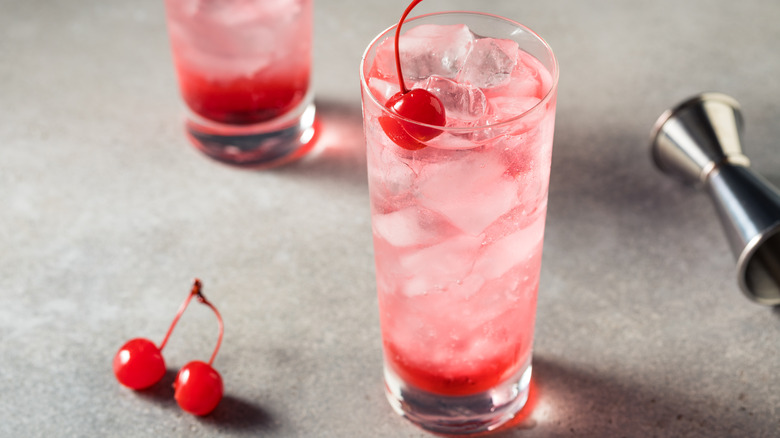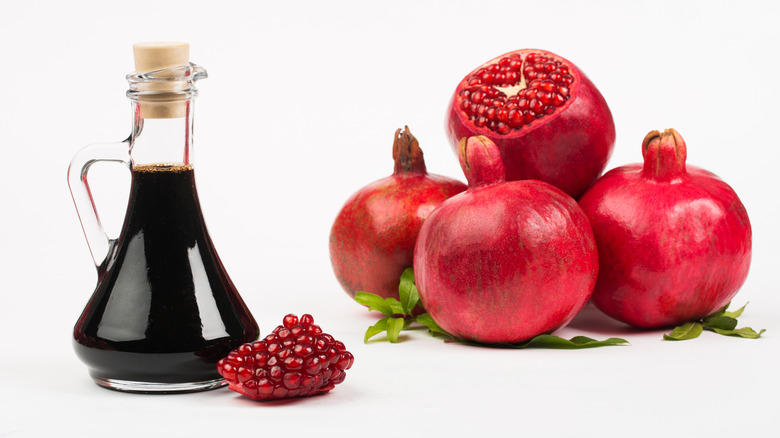The Tart, Fruity Flavors That Give Grenadine It's Distinct Taste
Grenadine is one of those true mystery ingredients, with a hard-to-define flavor and uses that seem limited to childhood Shirley Temples or the occasional sugary mocktail menu entry. The flavor you probably grew up with could best be described as very sweet with a vague bit of fruitiness. It's one of those ingredients you just accept without knowing what it is, because it gets used so rarely, and just seems like another artificially flavored sugar syrup. But grenadine actually gets its specific flavor from a specific fruit, and maybe not the one you are expecting. It's not cherry, despite its association with a maraschino cherry garnish, but pomegranate that gives grenadine its undercurrent of bright and tart tastes.
In its purest form, grenadine is pomegranate juice, cooked down into a syrup with sugar, and optionally a little citrus, often orange blossom water or orange peel. The grenadine you're probably most familiar with, Rose's, doesn't clearly taste like the acidic fruit, and that's because it really is mostly high fructose corn syrup and red dye. Rose's offers up a hint of pomegranate and gets close enough to the correct flavor that a federal court ruled it can legally be called grenadine, but the pomegranate taste in Rose's syrup doesn't come through like it does for true grenadine. Real grenadine is more sharp and a little floral, and although it's still pretty sweet, it's a much more complex taste than the saccharine concoction you're used to.
Grenadine was a cocktail star of the early 20th century
The most obvious connection to grenadine's base flavor comes from its name, which is derived from the French word for pomegranate: grenade. Pomegranates most likely originated in Persia, and have been cultivated since the Bronze Age, but grenadine's specific origins are unclear. It started showing up as a cocktail ingredient in Europe at the end of the 19th century, and in the 1910s and 20s it crossed the Atlantic and started appearing in U.S. cocktail guides. The most famous grenadine cocktail of this era was probably the Jack Rose, a mixture of applejack brandy, grenadine, and citrus juice that makes strong use of grenadine's balance between tart and fruity flavors.
Another favorite is the Tequila Sunrise, but it tastes very different when you use real grenadine. Like the citrus in a margarita or paloma, the acidity of real pomegranate juice creates a bright, refreshing cocktail instead of an overly sweet one. In fact, there's a whole litany of classic cocktails that rely on the more complex taste of true grenadine that are worth trying. The Clover Club mixes gin, lemon, and grenadine, while the El Presidente is a Cuban recipe that combines grenadine with rum, vermouth, and orange curaçao. Try a few of these old favorites for yourself to get a taste of what real pomegranate flavor can do, and you'll understand why it used to be such a staple.

